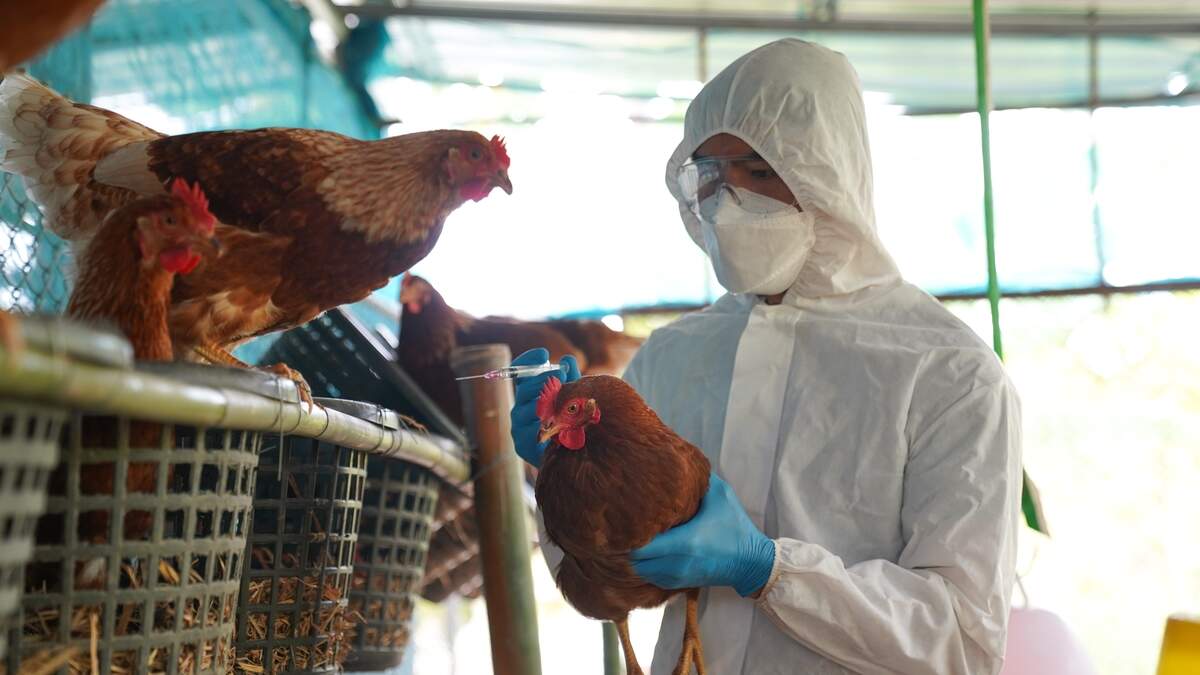Luxembourg supermarket chains have said that the outbreak of bird flu is putting their supply chains under increasing pressure, with Auchan experiencing “significant impacts” on the delivery of some products to Luxembourg.
A spokesperson for Auchan, which sources a lot of its eggs in France, said it is struggling to procure normal levels of supplies and also stressed that the outbreak had caused wholesale egg prices to rise sharply.
“We are experiencing significant impacts on this supply chain. However, thanks to our local partners, we are managing to guarantee a certain level of supply, even if it is difficult for local partners to guarantee a sharp increase in volume,” an Auchan spokesperson told the Luxembourg Times by email.
“In any case, we are working hand-in-hand to ensure that our customers can always find eggs on our shelves,” the spokesperson added.
The outbreak of avian flu that is sweeping Europe this autumn was confirmed to have arrived in Luxembourg in mid-October, found in wild herons in Howald and Rumelange.
The government responded by imposing additional sanitation rules on poultry farmers.
The discovery of the deadly virus in poultry leads to mandatory culls of farmers’ flocks that have widespread impacts on prices and supply chains.
The 2025 outbreak has already affected at least 15 EU member states, with Germany worst affected so far.
Also read:Two cases of avian flu detected in Luxembourg
Supermarket chain Delhaize Luxembourg sources its eggs in Belgium and told the Luxembourg Times that supplies have not been impacted to date.
The company said it has contingency plans in place if disruption occurs, but noted that egg prices are dictated by market factors out of its control and that they are rising even faster this year than they normally do in the run-up to the festive season.
Cactus has a strict fresh food supply policy that favours proximity, sourcing goods from Luxembourg, Belgium and France – as well as Portugal, thanks to demand from the country’s large Portuguese diaspora.
As a result, a Cactus spokesperson said, major disruption to supplies could be a headache, though no such issues have been noted so far. “Thanks to our regular exchanges and the relationship of trust established over many years, we would be able to adapt our supply solutions and maintain continuity as far as possible,” a spokesperson said.
According to Delhaize, poultry supplies are normal at the moment. “However, there’s a possible risk in the coming months, especially towards the end of the year when poultry is among the staple choices for holiday tables,” the company spokesperson said.
Auchan is also receiving fresh poultry as normal, but cautions of a separate issue arising. “There is also another impact that we are noticing on processed poultry products. Indeed, some are unavailable for a more or less long period due to suppliers/producers no longer being able to source raw materials and therefore being unable to offer the product for sale,” said a company spokesperson.
Keeping the virus out
Disease prevention is not only a legal requirement, it is front-and-centre of every farmer’s mind – especially given the disturbing news footage from Germany and elsewhere showing whole flocks being killed over a single confirmed infection.
“Sanitary measures have been supplemented by disinfection mats at the customer entrance. We always enter the henhouses in different clothes and footwear to our street clothes,” said Tom Mathay from Ferme Mathay, one of Luxembourg’s most prominent egg producers.
The farm keeps its roughly 45,000 laying hens in barns all year round, so they have no contact with the outside world or wild birds, Mathay confirmed, meaning infection is unlikely.
If culls were ordered at any other nearby farms, however, the government could impose a ban on moving poultry, which could have a very disruptive effect on the company and its production, Mathay said by email.
“For some time now, we have not been able to supply our customers with all the quantities we have ordered because demand has actually increased due to the shortage of eggs abroad, and the increased consumption of eggs by consumers,” Mathay said.
“The egg market is tense at the moment anyway, due to the high demand [and] low production. The price of eggs in international trade can still rise more if high numbers of laying hens are eliminated due to culling,” he added.
Bird flu: a European snapshot
Denmark confirmed an outbreak of bird flu on 6 October and that 150,000 chickens would be culled two days later. By the end of the month, 280,000 birds had been killed over four outbreaks.
In Germany, infections had been confirmed at 66 poultry farms by 3 November and nearly a million birds had been culled. Over 300 wild bird carcasses have tested positive for H5N1, although the actual number of deaths are estimated to be far higher.
France experienced infection at a pheasant and partridge breeding facility near Calais in mid-October, which kickstarted the country’s third annual vaccination campaign.
France favours vaccination over culling, due partly to foie gras production: ducks are flu super-spreaders that can infect many other birds without showing signs of illness themselves.
Luxembourg has no vaccination programme and focuses its efforts on prevention and elimination.
So far this year, avian flu has only been found in wild birds – from two cases on 22 October up to 18 by 4 November – the rise is alarming vets and making the jump to poultry ever more likely. Domesticated birds are under curfew orders nationwide.
Belgium has a similar situation and measures in place, though unlike Luxembourg, it has already had to contend with outbreaks and has culled at least 70,000 birds this autumn.
The Netherlands, despite repeated outbreaks – including 71,000 chickens culled in October – has not imposed a blanket housing order for poultry.
Instead, it uses regional risk-based confinement and is piloting “vaccination corridors” for export compliance.
